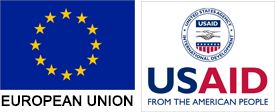Events
NPTF Partners

NPTF is a joint initiative of the Government of Nepal (GoN) and donors to support the implementation of the Comprehensive Peace Accord (CPA) and other agreements related to peace building. It has three specific functions;
- To function as a coordinating body for peace related initiatives,
- To act as a funding mechanism for GoN and donors, and
- To monitor the peace process.
It was set up in January 2007 for assisting implementation of the CPA.
According to the NPTF Strategy (2014-2017), while it has the primary responsibility in financing peace-related activities, it is the Ministry of Peace and Reconstruction (MoPR) that is mainly responsible for coordinating and monitoring the peace process, while the NPTF will support the ministry in this process.
The NPTF has a Board that takes all policy decisions and guides NPTF operations. The Board is chaired by minister for MoPR and co-chaired by the Minister for Finance. The Board is assisted by several mechanisms – the Technical Committee, Core Cluster, and Sectoral Cluster – to review and approve projects on peace and peace building. The NPTF is administered by the Peace Fund Secretariat (PFS) headed by a Joint Secretary, as the Executive Director.
The Joint Financial Arrangement (JFA), Strategy (2014-17),and the Peace Fund Operation Regulations (PFOR) guide NPTF. The JFA is an agreement between the Government of Nepal and the donor group supporting the NPTF. The Strategy provides a brief analysis of the background and context that the NPTF operate in, and outlines its future mandate, programmatic priorities, timeline for phasing out and closure, as well as institutional and operational options. The PFOR is an instrument that guides the project approval process and thedaily operationsof the PFS. The PFOR is the legal basis for the operations of NPTF.
The NPTF has a strategy covering the period 2014-17 that envisages supporting projects under four clusters – social dimension/support to CAPs, Transitional Justice and reconciliation, Access to security dimension, and political dimension. The PFS has programme documents that outline how activities in these clusters will be implemented. Government agencies can prepare concept notes and project documents based on the program document and implement projects.
"Project Implementing Agency" can bea Government agency, community based organizations, non-governmental organization registered under the prevailing law or international organization approved for working in Nepal under prevailing laws that have been selected for implementing projects.
Yes, they are available here in the NPTF website.(Concept Note: and Project Document: )
NPTF project Implementing Agencies are required to follow GoN’s financial administration law and rules, the Public Procurement Act and rules, Peace Fund Operation Regulations (PFOR) and tax laws, except where specific procedures are agreed at the time of project approval.
Yes, there are specified formats Implementing Agencies need to use for reporting to the PFS/NPTF. These formats are different than normal formats of the Office of the Auditor General (OAG) used in the GoN system.
Yes, the Implementing Agencies are required to follow the GoN system for financial administration, including record keeping. However, they are also required to prepare and submit financial reports in the prescribed formats to PFS.
Yes, NPTF follows GoN’s budgetary system and its budget allocation is reflected in Red Book.
PFS/NPTF provides fund to the Implementing Agencies following on-budget system, i.e. through authorizations. Implementing Agencies are responsible for proper utilization of the fund as per approved budget and audit of the expenses.
No, PFOR provides that unspent balance at the year-end can be maintained at non-freeze account (special miscellaneous) maintained at District Treasury Comptroller’s Office (DTCO).
No, NPTF fund has to be maintained at the DTCO controlled non-freeze account. However, in the case of non-government agencies, the PFS/NPTF can authorize them to maintain separate bank accounts they operate.
The concerned Implementing Agencies are fully responsible to get the NPTF project account audited (internally by DTCO and finally by the OAG) and are accountable for audit observations and their settlement.
No, unspent balance must be returned to the PFS/NPTF.
Generally, reports must be submitted to PFS each GoN trimester. However, project implementation agreement may require submission of reports on a monthly/bi-monthly basis.

